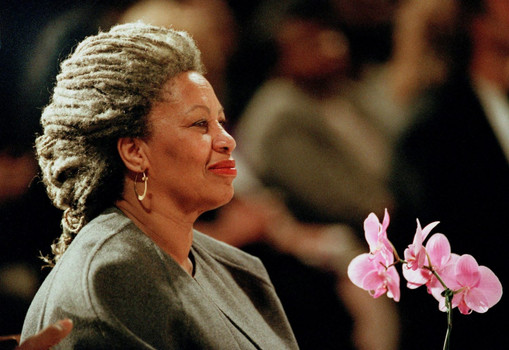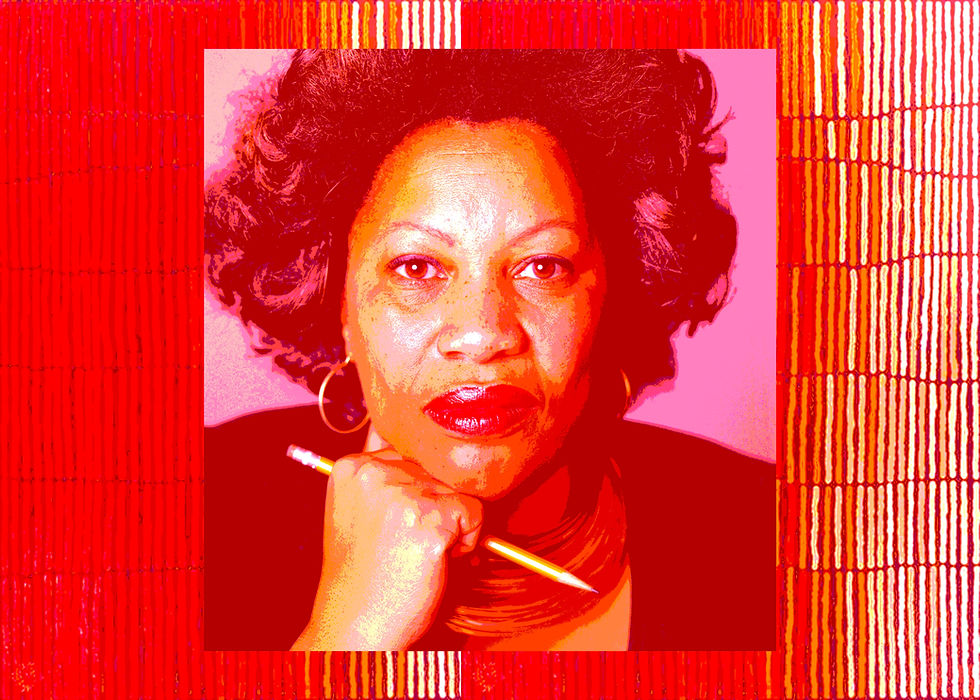"Anything" for "nervous love": a conversation between SZA and Song of Solomon
- CHATTYAFRO

- Jun 9, 2021
- 5 min read
Updated: Jun 28, 2021
This is an essay I wrote for my African-American lit class in 2020. It makes sense if you've ever read Morrison's Song of Solomon and listened to SZA's "Anything".
I got an A-.
“Anything” for “Nervous Love”
“Maybe I should kill my inhibition / Maybe I’ll be perfect in a new dimension”
These lyrics from the song “Anything” by songwriter and performing artist, SZA, wonderfully articulate the angst experienced after romantic rejection and abandonment. They carry more weight, however, coming from the mouth of a young black woman on her album about being bad at love. They cut deep in light of Toni Morrison’s Hagar. Pilate screaming “And she was loved!” is probably one of the most evocative moments in Song of Solomon (319). Yet a poignant take on what misguided love does to black women comes from the mind of Guitar. As he drives Hagar home from another failed attempt at murdering Milkman he reflects on how she got to this point,
Pretty little black-skinned woman. Who wanted to kill for love, die for love. The pride, the conceit of these doormat women amazed him… They could not believe or accept the fact that they were unloved; they believed that the world itself was off when it appeared as though they were not loved. Why did they think they were so lovable? Why did they think their brand of love was better than, or even as good as, anybody else’s? But they did. And they loved their love so much they would kill anybody who got in its way (309).
And sadly, Hagar’s love ultimately killed herself. She’s not alone in this tragedy. It killed Ruth’s future. It stole Ryna’s peace. Circe calls it “nervous love” (243). In this novel, Morrison illuminates how the black male characters’ flight can leave their black female lovers in emotional shackles, and the women most vulnerable to this “nervous love” are those without a loving community.
“Maybe I should pray a little harder / Or work a little smarter”
Ruth Dead exemplifies this lyric. Early on she’s introduced as a woman so desperate for love and affection that she breastfeeds her son far past the socially appropriate age--hence his nickname, Milkman. On top of that, Ruth is in a loveless marriage where her husband constantly insults her cooking, shoots down her contributions to conversations, and refuses to have sex with her for years. When her son confronts Ruth about why his father seems to hate her, she defends herself.
Then he turned to his mother. “Were you in bed with your father when he was dead? Naked?”
“No. But I did kneel there in my slip at his bedside and kiss his beautiful fingers. They were the only part of him that wasn’t…”
“You nursed me.”
“Yes.”
“Until I was… old. Too old.”
Ruth turned toward her son. She lifted her head and looked deep into his eyes. “And I prayed for you. Every single night and day. On my knees. Now you tell me. What harm did I do you on my knees?” (126)
This conversation further reveals why Ruth is the way she is. She isn’t sick, twisted, or evil. She’s lonely and willing to go to extremes to fill that void. She says it herself, “I lived in a great big house that pressed me into a small package. I had no friends, only schoolmates who wanted to touch my dresses and my white silky stockings… I was small, but he was big. He was not a good man, Macon. Certainly, he was an arrogant man, and often a foolish and destructive one. But he cared whether and he cared how I lived… And for that, I would do anything” (124). Ruth putting all her love eggs in one basket didn’t work when they went to her father, husband, or son. When her love wasn’t reciprocated, she was left feeling empty over and over again. Ruth living in a world isolated from the community because of her light skin, status, and wealth made it easy for her to fall prey to toxic, codependent relationships with men disguised as “nervous love.”
“Keepin' up is hard to do / Even harder feeling heavy, steady chasin' you”
Hagar fell in the same boat. After years of sleeping with Milkman and waiting for him to take their relationship to the next level, Hagar doesn’t take kindly to him ending their relationship via note. She also doesn’t take kindly to seeing him on dates with light-skinned women with copper hair and gray eyes who look nothing like her. So she chases him with ice picks, knives, and whatever she can find because now she has to kill him, “She could not get his love (and the possibility that he did not think of her at all was intolerable), so she settled for his fear” (128). Hagar and Milkman’s last interaction takes place in Guitar’s apartment. After making one cut in his collarbone, she stands over him wielding the knife unable to pierce it through his flesh. Once Milkman realizes Hagar isn’t able to finish the job, he tells her to kill herself and leaves the scene. Guitar finds her stuck in the same spot still holding the knife and decides to drive her home and provide some sound advice on self-love,
“Could you really love somebody who was absolutely nobody without you? You really want somebody like that? Somebody who falls apart when you walk out the door? You don’t, do you? And neither does he. You’re turning over your whole life to him. Your whole life, girl. And if it means so little to you that you can just give it away, hand it to him, then why should it mean any more to him? He can’t value you more than you value yourself” (306).
On top of lacking self-love, Hagar also lacks the loving community her life as a dark-skinned, black woman in America requires. Even though she lives in a household with two, loving black mother figures, “Neither Pilate nor Reba knew that Hagar was not like them… She needed what most colored girls needed: a chorus of mamas, grandmamas, aunts, cousins, sisters, neighbors, Sunday school teachers, best girl friends, and what all to give her the strength life demanded of her--and the humor with which to live it” (307). Yes, Pilate and Reba loved Hagar. Yes, they gave her everything they had and more, but Hagar needed people in her life to lovingly uplift, redirect, and sometimes even rebuke her because there are already too many things trying to kill black women in this wicked world. Why should another beautiful black girl die at the hands of “nervous love?”
Ruth and Hagar live very different lives on the surface. Yet they struggle with the same loneliness leading to nervous love behind closed doors. With this in mind, as Milkman celebrates his great-grandfather flying away from the bondage he faced as a black man, Sweet asking, “Who’d he leave behind?” brings readers back to earth (328). The flight of black men in this novel has an immense impact on black women. So, while Solomon, Milkman, and Guitar struggle against a world that wants their lives. Women like Ruth and Hagar fight for their love and lives to even matter.
“Do do you even know I'm alive? / Do do you even know I, I / Do do you even know I'm alive?
Do do you even know I, I / Do you know I'm alive? / Do you even know?”
Works Cited
Morrison, Toni. Song of Solomon. Vintage International. Vintage Books, a Division of Penguin Random House LLC, 2019.
SZA. “Anything.” Ctrl, RCA Records, 2017. Spotify, https://open.spotify.com/track/0336UwEBwBBao8uWCuugYr?si=b4iY3tp1SvqwOuTX7nMNoQ.








Wow. Thank you for this.👏🏽